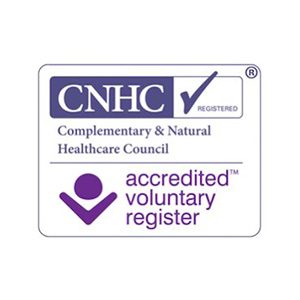What is it?
“What is food to one man may be fierce poison to another Lucretius circa 75BC”
While less than 2% of the population suffer from food allergies, it is estimated that more than 20% of the population suffer from food intolerance.
A classical food allergy such as peanut or shellfish allergy is usually characterised by an immediate and often severe reaction to exposure to the offending food. Symptoms include sneezing, rashes, skin irritation, swelling, runny nose, fatigue, and while allergic reactions to food can vary considerably in their severity, some may be fatal. Such allergic reactions usually involve IgE antibodies.
A food intolerance tends to be characterised by a delayed onset and maybe due to insufficiency of an enzyme as in lactose intolerance, to a pharmacological effect such as that caused by the tyramine in red wine, or to the production of IgG antibodies to the offending foods. The symptoms of IgG induced food intolerance can occur up to 3 days after eating the food concerned, making it very difficult to determine which foods are causing the problem.
What are the symptoms?
- Anxiety (acute or chronic)
- Arthritis
- Asthma
- Attention Deficit Disorder
- Bed wetting
- Bloating
- Bronchitis
- Coeliac Disease
- Chronic Fatigue Syndrome
- Constipation
- Cystic fibrosis
- Depression
- Diarrhoea
- Fibromyalgia
- Gastritis
- Headaches
- Hyperactivity Disorder
- Inflammatory Bowel Disease
- Insomnia
- Irritable Bowel Syndrome
- Itchy skin problems
- Malabsorption
- Migraine
- Sleep disturbances
- Water retention
- Weight control problems
Always see your GP or Medical Practitioner if you are experiencing any of the above symptoms for a professional diagnosis.
What causes it?
The majority of food intolerances are a result of an immune response to foods and may have developed because of poor digestion, dysbiosis, Candidiasis, parasites, intestinal infections, a poorly balanced diet, alcohol consumption, or the effects of drugs and medications. Each individual has their own unique reaction to food. Antibodies against the food may appear in the blood. Production of antibodies is one of the ways in which the body’s immune system reacts to substances that adversely affect it. Antibodies are also known as “Immunoglobulin’s” or “IgE’s” for short. Over time, the antibodies may form immune complexes, which can become deposited in joints and other organs and may be responsible for many of the symptoms that are seen in food intolerance.
How can Nutritional Therapy help?
Each person is different, therefore through one-to-one consultations we aim to identify each person’s causes to their food intolerances. Areas for consideration when establishing these causes are poor intestinal health, harmful dietary and lifestyle factors. These factors in themselves may lead to food intolerances, causing a vicious cycle. To break this cycle, identifying food intolerances and avoiding them to allow the intestines or gut to heal is of great importance.
The two most common methods to identify food intolerances include ‘Elimination Diet’ and ‘Food intolerance testing’. Deciding which method is most suitable is best discussed during a consultation with support of a completed Nutritional Questionnaire.
Once food intolerances have been identified they need to be avoided while an intestinal restoration protocol is followed for 3 to 6 months, along with a balanced, healthy diet.
To find out more about our Gut Restoration Programme click here.
A typical intestinal restoration programme focuses on “5 R’s”.
Remove offending foods (food intolerances) and harmful bacteria, yeast and/or parasite overgrowth.
Replace what is needed for normal digestion and absorption.
Repopulate the gut with friendly bacteria (probiotics) and provide a food source for the bacteria to thrive (prebiotics).
Repair mucosal and intestinal wall.
After this time, a planned reintroduction schedule for food intolerances helps to identify which foods are safe and no longer trigger an immune response leading to undesirable symptoms.
Re-establish gut health and immune function.
Call Andrea Bayles today or book a free consultation to find out more about Food Intolerance testing and our 90 Day Gut Restoration Programme.







